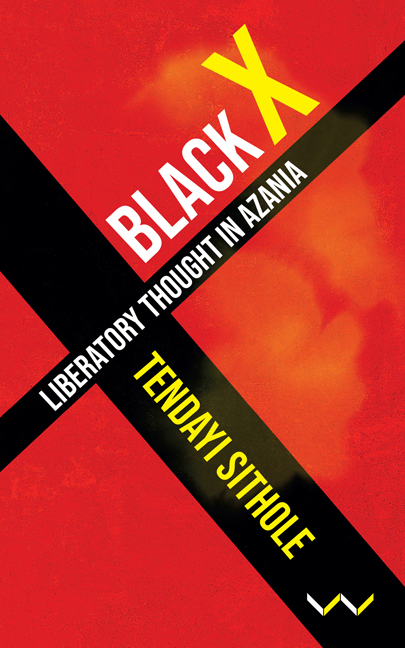4 - Mabogo P. More’s Intensifications
Published online by Cambridge University Press: 03 April 2024
Summary
For the black to exist as liberated, there must be a different set of conditions that the black must create.
A question is worth posing: what, fundamentally, is at stake with regard to the black? There is a need for the black not only to be on a quest to explain the meaning of existence. Since the world is antiblack, and that is the dehumanizing structure and logic that fabricates the black's existence, the black has a duty to find and define the meaning of existence in terms that are its very own. It is the duty of the black, by the black, for the black, and in the name of the black to live in a liberated way and refuse to be used, misused and abused.
What is facing the black and what the black comes face-toface with is dehumanization. The meaning of this fabricated force, institutionalized as reality even though it is not, should not only be falsified; rather, it should be unmasked and dismantled. For this to happen, there must be intensification. Simply put, intensification is a necessity – what ought to be. And it has been there throughout the long duration of the black's existential encounters and struggles since the idea of conquest was inaugurated as the order of the world – a world that came to be known as the antiblack world. From this disposition, intensification is a rallying point that animates Mabogo P. More's philosophical project. As a black disposition, it is the force that animates the black existential struggle. This force is the very constitutive element that brings something that is denied into being.
In his body of work, More pulls and pushes, depending on the force demanded by the situation that he deals with. As such, there is no stasis in his philosophical project. In pushing and pulling there is motion, acceleration and all discursive gestures that are on the move – and, of course, with intensity. Force is the way, but not the only way; it can be the right or the wrong way, depending on the situation in which it is exercised.
The mode of thinking black means that things must be different, and there must be a force in play to ensure that actualization of possibility comes into being to install a new set of conditions.
- Type
- Chapter
- Information
- Black XLiberatory Thought in Azania, pp. 105 - 130Publisher: Wits University PressPrint publication year: 2024

